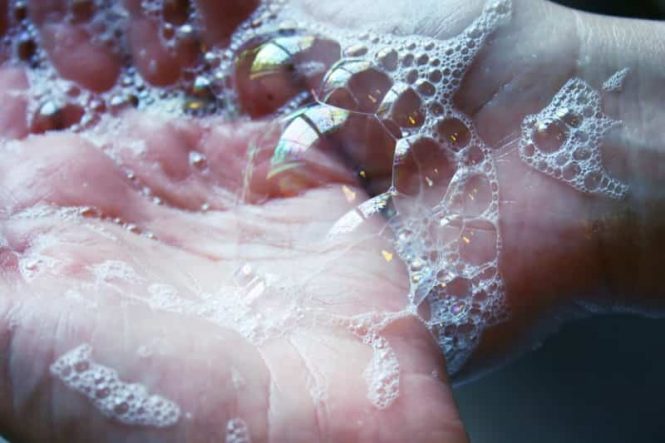
Excerpt from TheGuardian March 2020 — Pall Thordarson – professor of chemistry at the University of New South Wales, Sydney
Note: Along with soap, diluting some water with some bleach is highly effective though after repeated applications you may need to clean some of the residue.
Viruses can be active outside the body for hours, even days. Disinfectants, liquids, wipes, gels and creams containing alcohol are all useful at getting rid of them – but they are not quite as good as normal soap.
So why does soap work so well on the Sars-CoV-2, the coronavirus and indeed most viruses? The short story: because the virus is a self-assembled nanoparticle in which the weakest link is the lipid (fatty) bilayer. Soap dissolves the fat membrane and the virus falls apart like a house of cards and dies – or rather, we should say it becomes inactive as viruses aren’t really alive.
The slightly longer story is that most viruses consist of three key building blocks: ribonucleic acid (RNA), proteins and lipids. A virus-infected cell makes lots of these building blocks, which then spontaneously self-assemble to form the virus. Critically, there are no strong covalent bonds holding these units together, which means you do not necessarily need harsh chemicals to split those units apart. When an infected cell dies, all these new viruses escape and go on to infect other cells. Some end up also in the airways of lungs.
Soap contains fat-like substances known as amphiphiles, some of which are structurally very similar to the lipids in the virus membrane. The soap molecules “compete” with the lipids in the virus membrane. This is more or less how soap also removes normal dirt from the skin.
The soap not only loosens the “glue” between the virus and the skin but also the Velcro-like interactions that hold the proteins, lipids and RNA in the virus together.
Read complete article at TheGuardian March 2020
